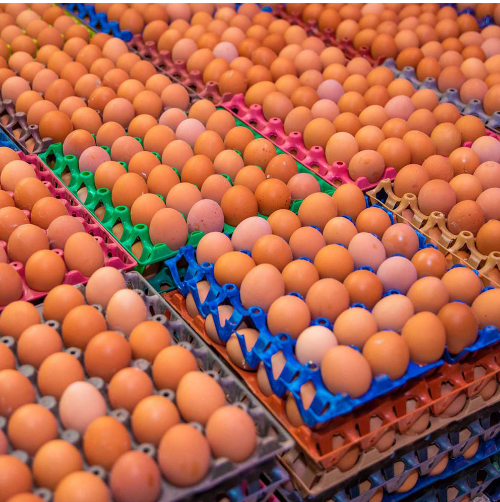By Jemimah Wellington, JKNewsReporter
THE REMOVAL of fuel subsidies and rising feed costs are threatening Nigeria’s egg industry, with prices of crates potentially soaring to N10,000 from the current N5,500.
Poultry farmers are grappling with high transportation costs and feed prices, which have doubled in some cases.
Without immediate government intervention, they’re lamenting that the situation could worsen, further reducing access to affordable protein for many Nigerians.
Musa Hakeem, Secretary of the Poultry Association of Nigeria (PAN), FCT Chapter, raised these concerns during a press briefing in Abuja on World Egg Day.
Hakeem stressed the urgent need for government action, warning that the price hike could exacerbate the already alarming decline in protein consumption across the country.
He explained that farmers have tried to absorb some of the rising costs but warned that this could only be sustained for a short time.
Despite these challenges, Hakeem noted that the last government intervention in the poultry sector was three years ago, with no subsequent relief for farmers.
Feed millers, meanwhile, have continued to increase prices indiscriminately, compounding the difficulties faced by poultry farmers.
Jude Arikogu, CEO of Pest Agro Dealers, criticized the millers for reducing the actual weight of feed bags, often falling short of the 25kg standard.
Arikogu highlighted the difficulty in obtaining financing from banks, which have shown little interest in supporting the poultry industry.
At the national level, Ibrahim Lamidi, an ex-officio officer of PAN, expressed concern over the hostile business environment, which has left farmers struggling to keep eggs on Nigerian tables.
He urged Nigerians to turn to eggs as a cheaper and more nutritious alternative to meat, while also calling on the government to declare a state of emergency in the egg production sector.





